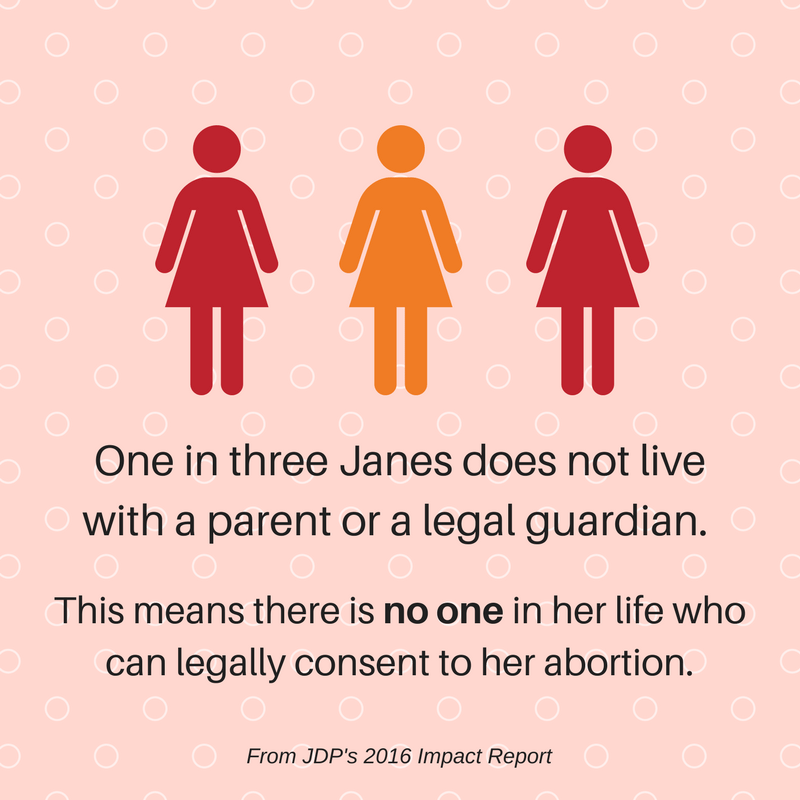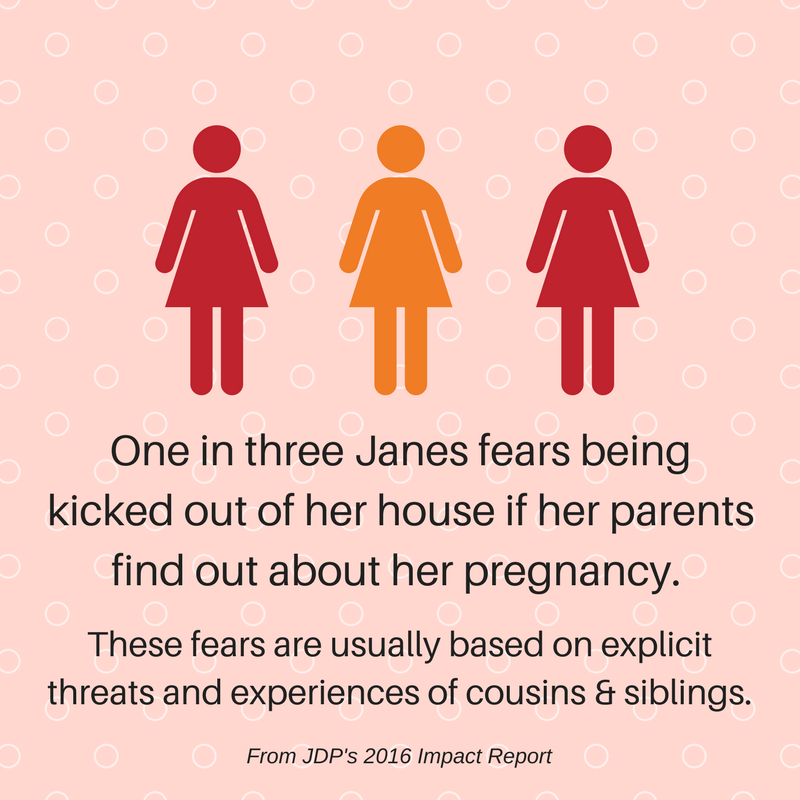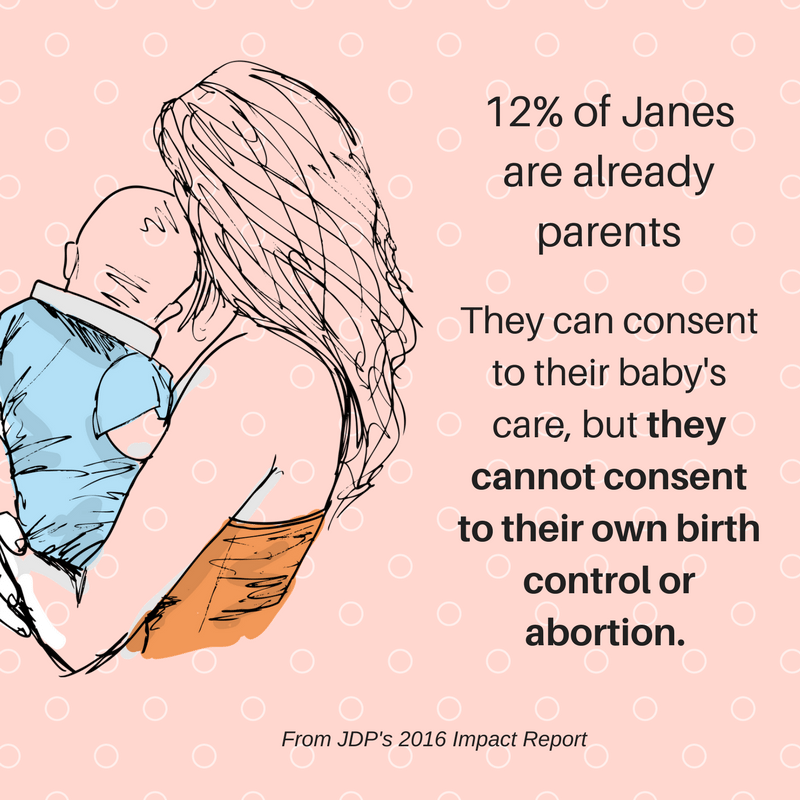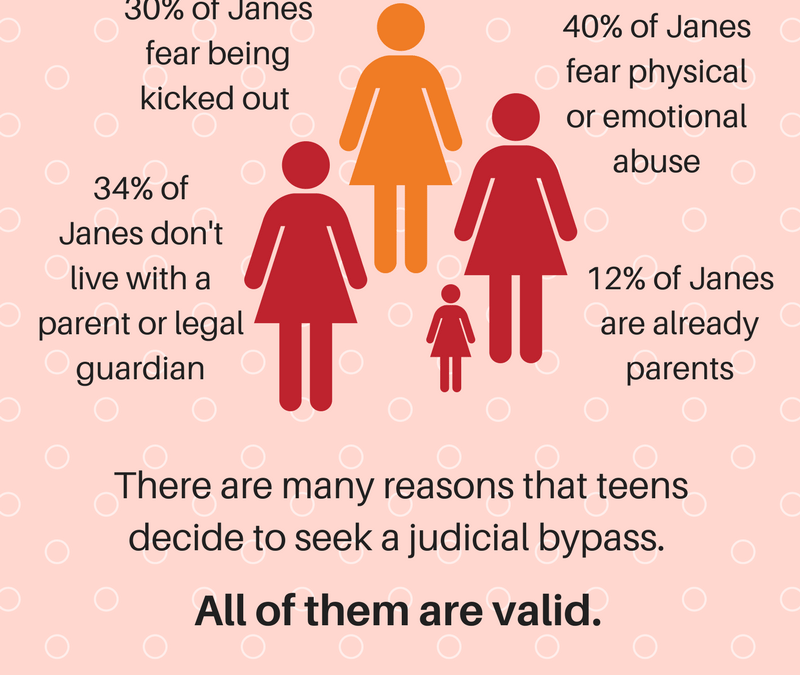By Amanda Bennett, Client Services Manager
In 2016, Jane’s Due Process connected 182 minors with an attorney to apply for judicial bypass for an abortion in Texas. The stories of these minors – Janes, as we call them because of their legal status as Jane Does – are as diverse as the teens themselves.
Two out of every 5 of the minors we served in 2016 feared emotional or physical abuse if their parents found out about their pregnancy or abortion. Texas’s parental involvement law put these minors are serious physical and emotional risk, and increased their anxiety about their unintended pregnancy. For these minors, judicial bypass allowed them to involve only the people they knew would be supportive, not the people who would hurt or ridicule them. When confronted with an unplanned pregnancy, everyone deserves the right to privacy, to control when and which people find out, and to choose their own support network.

One in 3 of the Janes that we helped in 2016 did not have anyone in her life who could consent to her abortion. Many minors live in non-traditional families, headed by a grandparent or an aunt, or live with friends, boyfriends, or neighbors. Some minors have parents who are incarcerated, who have passed away, or who live abroad or out of state. Texas’s parental consent law restricts the ability to consent for a minor’s abortion to her parents or legal guardian. In many of these situations, the minor’s caregiver is not the minor’s official legal guardian. Many grandmothers, for example, don’t realize that they don’t have the legal right to consent until they get to the clinic with their granddaughter. Even if the relative has been the minor’s primary caregiver for years, or her entire life, if they have not gone to court to become the minor’s legal guardian, they cannot consent. On occasion, a minor’s parent is willing to consent – but does not have the correct documentation or identification to prove that he or she is the minor’s parent and have the consent forms notarized.

One in 3 Janes feared being kicked out of the house if her parents found out about her pregnancy or desire for an abortion. Janes told stories about their older sisters or cousins being kicked out of the house when they became pregnant, or recounted specific threats their parents had made when the topic of pregnancy had come up before. A minor facing an unplanned pregnancy needs support – not punishment. Judicial bypass allowed these minors to preserve their important family relationships and stay off the streets.

In Texas, minors cannot consent to their own birth control except at federally funded Title X clinics. Even minors who are already parents cannot consent to their own birth control. The lack of sex education and lack of access to contraception means that Texas has the highest repeat teen birth rate in the country. Teens who are already parents are uniquely qualified to make decisions about subsequent pregnancies: they certainly understand what carrying a pregnancy to term and parenting involves. Teen parents are also likely to be living on their own, either kicked out or choosing to live with the baby’s father. But even these teens must prove their maturity to a judge in order to access an abortion without parental consent. These 12% of Janes also face additional barriers in accessing abortion: they must find childcare while going through the various steps of the judicial bypass process.
There are many reasons that minors seek judicial bypass. All of them are valid. Although we recognize the importance of parental support, we understand that many teens do not have that support from their parents. Jane’s Due Process is here to help any minor who feels that she cannot involve a parent with her abortion. Call our hotline at 866-999-5263 for assistance with the judicial bypass process.



